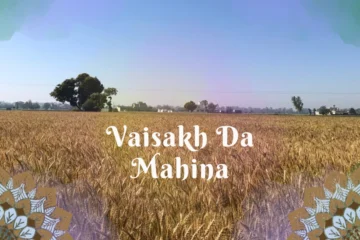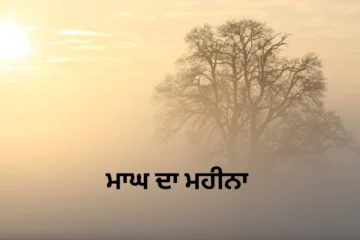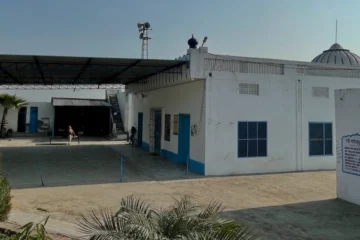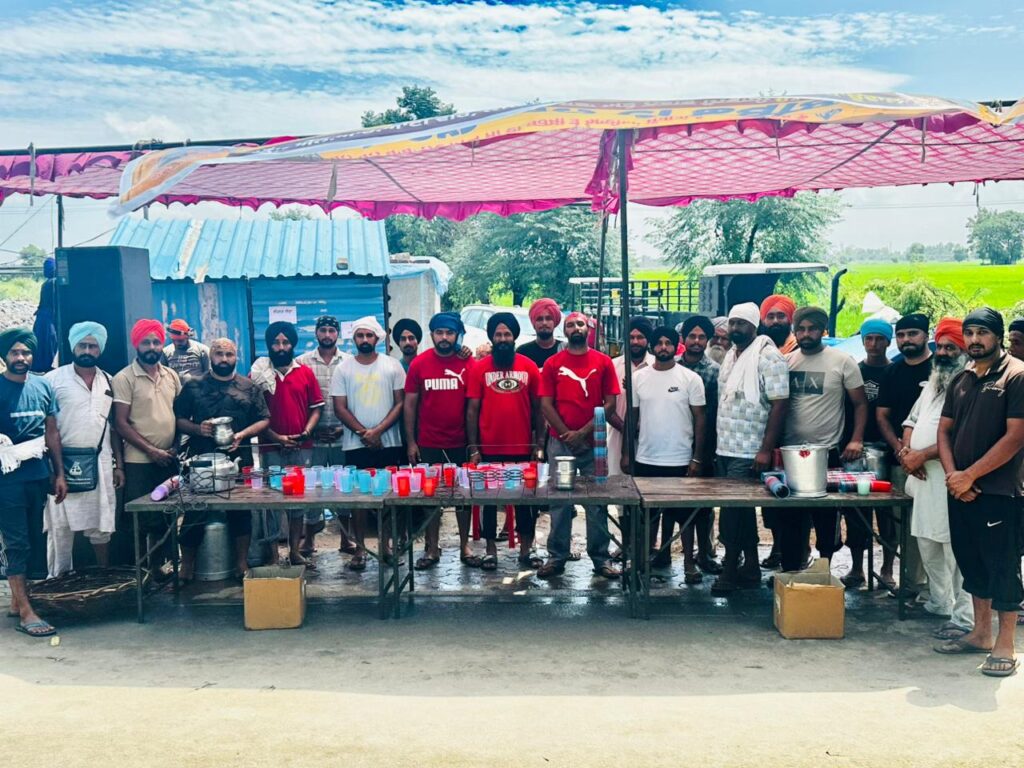
Join us in celebrating Dhan Dhan Baba Nand Singh Ji’s 81st Barsi at Nanaksar, Kaleran. Shabeel seva was arranged on August 27th and 28th by Village Raowal at Barsi. Experience the deep-rooted tradition of Shabeel, honouring the legacy of spiritual devotion and community service. This sacred event fosters unity and reverence, bringing together devotees to commemorate a spiritual icon. Don’t miss this opportunity to be part of a profound tradition that uplifts the soul and strengthens communal bonds.
Introduction
The Shabeel tradition, a significant event in the Sikh community, commemorates the anniversaries of saints and gurus. One such commemoration, the 81st Barsi of Baba Nand Singh Ji, was recently held at Nanaksar, Kaleran. This article delves into the details of this event, highlighting the spiritual significance, cultural practices, and community involvement surrounding the Shabeel tradition.
Baba Nand Singh Ji: A Revered Saint
Dhan Dhan Baba Nand Singh Ji was a revered saint of the Sikh faith, known for his spiritual devotion, selfless service, and profound teachings. His life and legacy continue to inspire countless devotees worldwide. The 81st Barsi marked a significant milestone in honouring his contributions to the Sikh community.
The Importance of Barsi in Sikh Culture
Barsi, which means “anniversary,” is a significant event in Sikh culture, particularly when it comes to commemorating the death anniversaries of revered saints. The Barsi of Baba Nand Singh Ji holds a special place in the hearts of his followers, as it provides an opportunity to reflect on his teachings and the impact he had on Sikhism. Over the years, this event has grown in importance, drawing devotees from all over the world to participate in prayers, hymns, and acts of service.
Understanding the Shabeel Tradition
Shabeel is a cherished tradition in Sikhism that involves serving refreshments, particularly during hot weather, to anyone in need. This practice symbolizes the essence of Seva, or selfless service, which is a core principle in Sikhism. The tradition of Shabeel dates back to the time of the Sikh Gurus, who encouraged their followers to serve others without any expectation of reward. Over time, Shabeel has become a way for Sikhs to honour the memory of their saints and martyrs, while also providing a vital service to their communities.
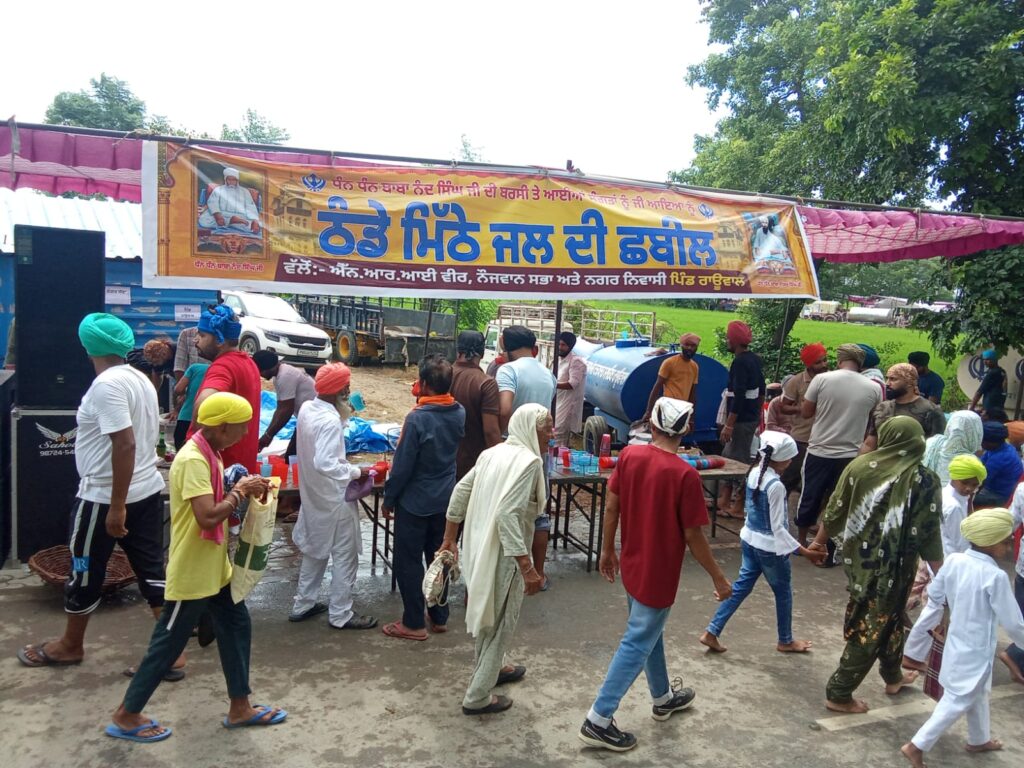
Preparations for the Shabeel
The organization of a Shabeel requires meticulous planning and preparation. The community of Village Raowal worked tirelessly to ensure the event was a success. Youngsters of village Raowal organized the Shabeel event.They arranged and handle various aspects, including logistics, decorations, water arrangements, and spiritual programs.
Spiritual Programs and Activities
The 81st Barsi of Dhan Dhan Baba Nand Singh Ji was held at Nanaksar 24th to 28th August 2024, drawing thousands of devotees from near and far. The event was marked by a series of religious ceremonies, including the continuous recitation of the Guru Granth Sahib (Akhand Path), the singing of hymns (Kirtan), and a special prayer (Ardas) for the well-being of all. The atmosphere was one of deep spirituality, as attendees came together to honour the memory of a saint who had touched so many lives.
Community Involvement and Participation
The Shabeel was a community-driven event, with active participation from people of all ages. Volunteers contributed their time and efforts to ensure the smooth functioning of the various activities. The sense of unity and camaraderie among the community members was evident throughout the event.
Religious Ceremonies and Prayers
The religious ceremonies at the Barsi were deeply moving, providing a space for devotees to connect with their faith. The Akhand Path, a continuous recitation of the Guru Granth Sahib, was a central part of the event, symbolizing the uninterrupted presence of divine wisdom. Kirtan, or the singing of hymns, filled the air with a sense of peace and devotion, while the Ardas prayer brought the community together in a collective plea for the well-being of all.
The Kirtan Darbars
The Kirtan Darbars were organized during the Barsi . Renowned kirtanis from across the region performed, captivating the audience with their melodious voices and soulful renditions of Gurbani. The kirtan created a sense of spiritual harmony and devotion among the attendees.There was a live telecast of Barsi event on YouTube Channel Nanaksar Kaleran
Community Engagement and Service
The Shabeel was not merely a religious event but also a platform for community engagement and service. Volunteers from the local community played a vital role in organizing and managing various aspects of the event. Their selfless service exemplified the Sikh principle of seva (selfless service).
Cultural Exchange and Unity
The Shabeel also served as an opportunity for cultural exchange and unity. People from different regions and backgrounds came together to celebrate the occasion, fostering a sense of camaraderie and shared spirituality. The event showcased the diversity within the Sikh community while reinforcing its underlying unity.
The Lasting Impact
The Shabeel at Nanaksar left a lasting impact on the participants. It provided a spiritual upliftment, strengthened community bonds, and reinforced the teachings of the Sikh Gurus. The event served as a reminder of the importance of honoring the legacy of saints and gurus and the enduring power of the Shabeel tradition.
FAQs About the Shabeel Tradition
1. What is the significance of the Shabeel tradition?
The Shabeel tradition is a significant event in the Sikh community that commemorates the anniversaries of saints and gurus. It serves as a platform for spiritual connection, devotional activities, and community gatherings.
2. What are the key activities during a Shabeel?
During the Shabeel, cold sweet water was poured to the Sangat and the youth of village Raowal served the whole day in the Shabeel and received the Guru’s blessings.
3. Who organizes Shabeels?
Shabeels are often organized by local Sikh communities, gurdwaras (Sikh temples), or individuals who are dedicated to the tradition.
4. Can anyone attend a Shabeel?
Yes, Shabeels are open to everyone, regardless of their religious affiliation. They are a celebration of spirituality and community, and all are welcome to participate.
Conclusion
The Shabeel tradition, as exemplified by the 81st Barsi of Baba Nand Singh Ji at Nanaksar, serves as a powerful reminder of the rich spiritual heritage of Sikhism. It fosters community engagement, promotes religious devotion, and perpetuates the teachings of the Sikh Gurus. The event was a testament to the enduring spirit of the Sikh community and its commitment to honouring the legacy of its saints and gurus.
